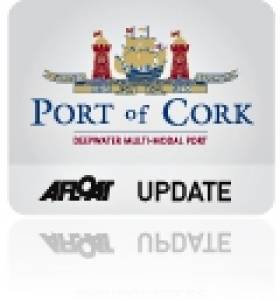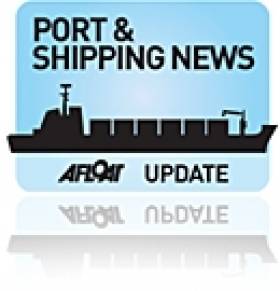Displaying items by tag: Safehaven Marine
Port of Cork Award Safehaven Marine New Pilot Boat Contract
The Port of Cork has today announced that local Cork Company, Safehaven Marine have been awarded the contract to build the Port of Cork's new pilot vessel. Due to be delivered in 2012, Safehaven Marine beat off strong competition from several other companies to win the contract.
Commenting on the contract Captain Paul O'Regan, Deputy Harbour Master, said: "As part of our planned renewal of equipment and vessels, the port recently advertised a contract to build a new Pilot vessel on e-tenders. We are pleased to announce that "Safehaven Marine", a Cork based boat builder has been successful."
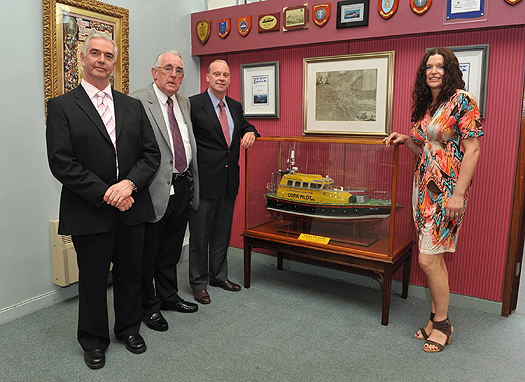
He continued: "Safehaven Marine pilot boats are highly regarded in the industry and have a reputation as very sound sea keeping vessels; this is in part, as a result of extensive design trials undertaken in large swells and rough seas around the entrance to Cork harbour, during winter storms."
Since building the last Cork pilot boat in 2006, Safehaven Marine has specialised in the 'niche' pilot boat market and continuously expanded. Currently employing 30 staff, Safehaven Marine operates out of two factories, one in Little Island and a new state of the art facility built in Youghal. They have supplied pilot boats worldwide, from Scandinavia, Europe, and the Mediterranean and as far afield as Asia and the Middle East, and in 2012 will pass a milestone by launching their 100th vessel since being established in 1996. Safehaven are now probably Europe's leading manufacturers of GRP pilot boat.
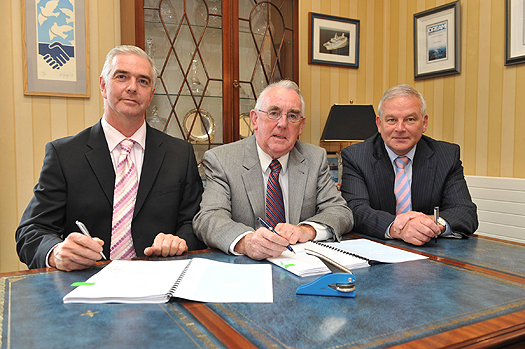
Safehaven Marine, Managing Director Frank Kowalski commented "This was a very special award for us as this is our local Port, and having built their last new pilot vessel six years ago, we have built up a great relationship with all the crew and pilots, and are delighted to be once again, six years later building their new pilot vessel. The Port of Cork's new pilot boat will be an example of our high level of design and engineering, and we all look forward to delivering their new pilot vessel in 2012".
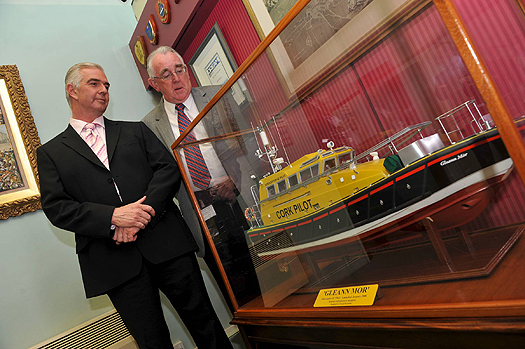
Wicklow's Wildcat Wind-farmer's
The County Wicklow based firm, Island Shipping which ordered a pair of Wind-farm support service vessels starting with the Island Tiger, recently took up station on charter work at the world's largest offshore wind-farm construction project, writes Jehan Ashmore.
The Island Tiger is working at the Greater Gabbard Offshore Wind-farm in the North Sea, which is located 25km off the Suffolk coastline. The site of the £650m project is identified as one of three strategic locations for offshore wind-farm development identified by the UK Government. The 140 wind-turbine project with a 504MW capacity is owned by joint venture partners Scottish and Southern Energy (SSE) and RWE npower (RWE).
The second newbuild Island Panther, is currently under construction at Safehaven Marine, Cork and available for charter in 2011. Both craft are of the WildCat 53 design catamaran, that are robust to handle in heavy seas. The 16m craft are designed to go at high-speed at a maximum of 27 knots and are water-jet propelled. The craft are manned by a crew of two and can carry 12 passengers, which is the craft's primary role to transfer wind-farm support personnel, equipment and their supplies to land at the offshore wind-turbine installations.
The charter market for such service-support craft is increasing as the number of offshore wind-farm projects continue and the need to maintain them when completed. Before Island Tiger took up North Sea duties, the newbuild was show-cased at SeaWork, the shipping industry's event for small workboats that was held in Southampton during June.
Apart from experience in serving the offshore wind-farm industry, Island Shipping also operate vessels for charter management; marine construction and underwater operations which involved the company's tug Husky in assisting in the contruction of the new River Shannon road tunnel, close to Limerick City.
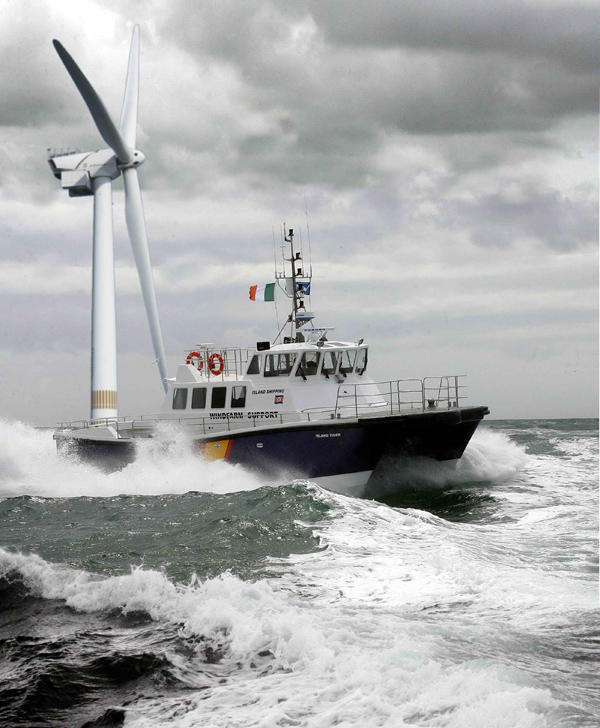
Island Tiger in rough seas passes a wind-turbine


























